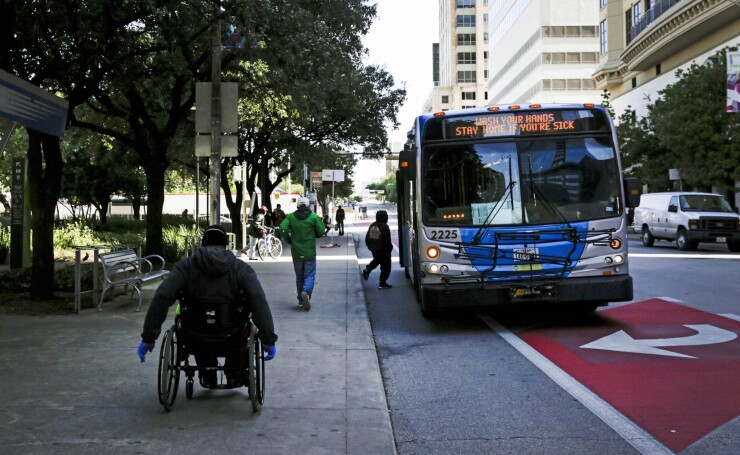A group of property taxpayers in Austin, Texas, filed a lawsuit this week to stop the issuance of bonds for a multi-billion-dollar light-rail project.
The litigation filed Monday in Travis County District Court against Austin's mayor, city council, and transit officials seeks a permanent injunction prohibiting the Austin Transit Partnership, a corporation created by the city and its Capital Metro Transportation Authority to spearhead Project Connect, from issuing any long-term debt that would be paid off with an increase in the city's property tax rate.
Voters in 2020 approved the tax hike to help fund what was then a $7.1 billion light rail plan. The plaintiffs contend funds raised by the tax hike can only be used for city maintenance and operation purposes.

"Austin cannot get around this restriction on the use of the Project Connect Tax by creating an alter-ego corporation… and transferring the limited-purpose tax to ATP to use to pay debt service on bonds ATP plans to issue," the lawsuit said, adding ATP "does not have more authority or fewer restrictions on its use of property tax revenue than the city itself."
It pointed to a May Texas Attorney General
The city has contended ATP has the ability to issue contract revenue bonds. Bryan Rivera, ATP's interim chief financial officer, said no bond sale has been approved and officials continue to work with consultants and bond counsel "to solidify the plan of finance."
Austin Mayor Kirk Watson expressed disappointment with the lawsuit and said the city will review the allegations carefully and take appropriate next steps.
"The voters approved this ongoing multi-billion-dollar project that will bring much needed mobility infrastructure to the city of Austin," he said in a statement.
Plaintiffs, who include a former Austin City Council member and a current Travis County commissioner, also claim the project presented to voters in 2020 is not the same project that is moving forward.
"The defendants cannot rely on voter authorization to build the 2020 Project Connect plan to instead build a drastically different Project Connect plan with features voters might very well have rejected," the lawsuit said.
As estimates reportedly topped $11 billion from $7.1 billion in 2020, ATP in March
In June, ATP announced





